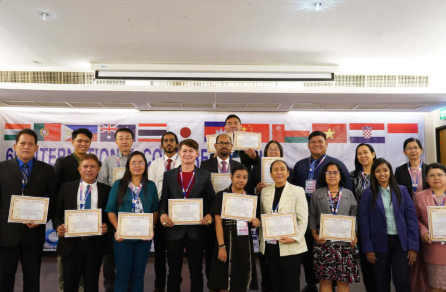
Academic Journal and conference publication inquiries publishing plays a crucial role in the dissemination of knowledge, fostering innovation, and advancing research across various disciplines. As the demand for quality research continues to grow, so does the need for streamlined submission processes to reputable journals and conferences. This comprehensive guide provides an in-depth look at conference and journal submission assistance, offering valuable insights into best practices, requirements, and strategies for successful publication.
Understanding Academic Publishing
Academic publishing serves as the foundation of scholarly communication, providing researchers with a platform to share their findings with a global audience. The process involves submitting research papers to peer-reviewed journals and conferences, where they undergo rigorous evaluation before publication. Key aspects of academic publishing include:
-
Peer Review Process: Ensuring research quality through expert evaluation.
-
Publication Ethics: Maintaining integrity and originality in research.
-
Impact Factor & Indexing: Measuring the significance of a journal.
-
Open Access vs. Subscription-Based Publishing: Understanding different publishing models.
Conference Paper Submission
Academic conferences provide researchers with an opportunity to present their work, receive feedback, and network with peers. The submission process typically includes:
-
Selecting the Right Conference
-
Identifying relevant conferences in the field.
-
Evaluating conference credibility and impact.
-
Understanding submission deadlines and guidelines.
-
-
Preparing the Paper
-
Formatting according to conference guidelines.
-
Structuring content effectively (Abstract, Introduction, Methodology, Results, Discussion, Conclusion).
-
Incorporating references and citations properly.
-
-
Submission Process
-
Using online submission portals.
-
Adhering to word count and formatting specifications.
-
Uploading necessary supplementary files (figures, datasets, etc.).
-
-
Review and Acceptance
-
Understanding the peer-review timeline.
-
Responding to reviewer comments and revisions.
-
Preparing for presentation and publication.
-
Journal Paper Submission
Publishing in academic journals is a rigorous process that requires careful planning and adherence to journal-specific guidelines. The key steps include:
-
Choosing the Right Journal
-
Matching research scope with journal aims and objectives.
-
Evaluating journal impact factor and reputation.
-
Reviewing past publications to align with the target journal’s focus.
-
-
Manuscript Preparation
-
Structuring the paper effectively.
-
Ensuring clarity, coherence, and originality.
-
Using proper citation styles (APA, MLA, IEEE, etc.).
-
Following ethical guidelines and avoiding plagiarism.
-
-
Submission Process
-
Registering on the journal’s submission platform.
-
Adhering to formatting and file requirements.
-
Writing a compelling cover letter to the editor.
-
-
Peer Review and Revisions
-
Understanding single-blind, double-blind, and open review processes.
-
Addressing reviewer feedback professionally.
-
Revising and resubmitting as necessary.
-
-
Acceptance and Publication
-
Finalizing the manuscript with necessary corrections.
-
Complying with copyright and licensing agreements.
-
Promoting published research for wider reach and citations.
-
Common Challenges and How to Overcome Them
Many researchers encounter obstacles during the publication process. Common challenges include:
-
Rejection of Manuscripts: Understanding rejection reasons and improving future submissions.
-
Plagiarism and Ethical Issues: Ensuring originality and proper citation practices.
-
Formatting and Technical Requirements: Following strict journal/conference formatting guidelines.
-
Language Barriers: Seeking professional editing and proofreading services.
-
Meeting Deadlines: Effective time management and submission planning.
Resources for Authors
Numerous resources are available to assist researchers in their publishing journey, including:
-
Online Submission Portals: ScholarOne, Editorial Manager, EasyChair.
-
Reference Management Tools: EndNote, Zotero, Mendeley.
-
Plagiarism Detection Software: Turnitin, iThenticate.
-
Language Editing Services: Grammarly, Elsevier Author Services.
-
Publication Workshops and Webinars: Hosted by universities and academic institutions.
Conclusion
Navigating the academic publishing landscape requires diligence, expertise, and adherence to best practices. By understanding the submission process for journals and conferences, researchers can enhance their chances of successful publication and contribute to the advancement of their respective fields. This guide serves as a valuable resource for authors seeking conference and journal submission assistance, ensuring their research reaches the widest possible audience with the highest impact.




Leave a Reply